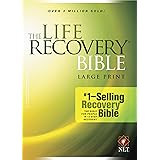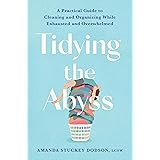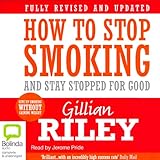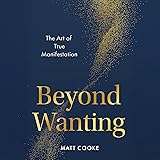The journey of personal growth often begins with a fundamental question: how does one truly build self-awareness? This profound inquiry explores the depths of our psyche, seeking to uncover what remains hidden. As highlighted in the insightful video clip above, understanding ourselves is not always an intuitive process, especially when dealing with the unknown unknowns.
True self-awareness goes beyond merely recognizing our preferences or moods. It involves a deep understanding of our thoughts, feelings, behaviors, and the underlying motivations driving them. Cultivating this critical insight empowers us to make more conscious choices and navigate life’s complexities with greater clarity.
Understanding the Essence of Self-Awareness
Self-awareness serves as the bedrock for all personal development and effective decision-making. It represents the ability to clearly understand one’s own character, feelings, motives, and desires. Without this internal compass, individuals often find themselves reacting impulsively rather than responding thoughtfully, leading to cycles of frustration or unfulfilled potential.
Developing robust self-awareness allows you to identify your strengths and weaknesses with honesty. This essential introspection fosters a greater sense of authenticity and purpose in your daily life. It enables individuals to align their actions with their core values, leading to increased satisfaction and a more meaningful existence.
The Direct Path to Self-Awareness: Jordan Peterson’s “Proper Prayer”
As Jordan Peterson eloquently describes in the accompanying video, there exists a potent exercise for building self-awareness. He frames it as a “proper prayer,” emphasizing the seriousness and genuine desperation required for honest self-inquiry. This method asks you to confront your own shortcomings with an open mind and a true commitment to change.
Imagine yourself sitting quietly, perhaps on your bed at night, and sincerely asking a precise question. This isn’t a casual thought but a desperate plea for truth: “What is one thing I am doing wrong, that I know I am doing wrong, that I could fix, and that I would fix?” This powerful query cuts through self-deception, demanding an honest answer.
The Power of Intentional Self-Inquiry
This specific exercise for fostering self-awareness is remarkably effective due to its focused nature. It doesn’t invite a vague rumination but a highly targeted question that requires deep personal introspection. The insistence on knowing what you are “doing wrong” bypasses common defenses and directs your consciousness toward actionable areas of improvement.
Furthermore, the crucial phrase “that I know I am doing wrong” is significant. It prevents you from getting lost in speculative self-criticism or external blame. Instead, it compels you to address issues you already subconsciously recognize, but perhaps actively ignore or rationalize away. This focus on known errors makes the process less overwhelming and more concrete.
Committing to Action: “That I Could Fix, That I Would Fix”
The latter part of Peterson’s “prayer” adds a vital layer of commitment to the self-awareness journey. It’s not enough to simply identify a flaw; you must also believe it is fixable and, more importantly, be willing to put in the effort. The phrase “that I could fix” encourages a realistic assessment of your capabilities and resources.
Moreover, stating “that I would fix” transforms the exercise from mere identification into a proactive pledge. This commitment to change is what truly distinguishes deep self-awareness from superficial introspection. It bridges the gap between knowing and doing, moving you from passive understanding to active personal growth.
Embracing the Uncomfortable Truth
When you genuinely engage in this profound self-inquiry, the answer may not be what you want to hear. Often, the truths about ourselves, particularly our flaws, can be uncomfortable or even painful. However, this discomfort is a necessary component of genuine self-awareness and subsequent personal transformation.
For example, the answer might reveal a habit of chronic procrastination that impacts your career. It could expose a tendency to be dismissive towards loved ones, straining your most important relationships. While challenging, acknowledging these truths is the first essential step towards creating lasting positive change in your life.
Examples of “One Thing I’m Doing Wrong”
The “one thing” you identify could manifest in countless ways, often related to various aspects of your life. Common areas include:
- Communication Habits: Perhaps you frequently interrupt others or struggle to express your true feelings.
- Time Management: You might consistently put off important tasks, leading to unnecessary stress and missed opportunities.
- Interpersonal Relationships: Maybe you find yourself gossiping, holding grudges, or being overly critical of friends and family.
- Personal Discipline: This could involve neglecting your health, succumbing to impulses, or failing to follow through on personal goals.
- Emotional Regulation: You might recognize a tendency to overreact in stressful situations or suppress difficult emotions rather than processing them.
Pinpointing one specific, actionable item prevents overwhelming yourself and allows for focused effort toward self-improvement.
Beyond the Exercise: Deepening Self-Knowledge
While Peterson’s exercise is a powerful starting point for building self-awareness, it is also part of a larger, ongoing process. Cultivating a deeper understanding of yourself requires continuous effort and various tools. Integrating other practices into your routine can further enhance your personal growth journey.
Regular mindfulness meditation, for instance, helps you observe your thoughts and feelings without judgment, fostering greater self-reflection. Journaling is another excellent method, providing a private space to explore your inner world and track behavioral patterns over time. Seeking honest feedback from trusted friends or mentors can also offer valuable external perspectives on your actions and impact.
The Ripple Effect of Enhanced Self-Awareness
The benefits of fostering self-awareness extend far beyond simply fixing identified flaws. As you become more attuned to your inner workings, your decision-making processes improve significantly. You gain the ability to make choices that truly align with your long-term goals and values, rather than being swayed by momentary impulses or external pressures.
Increased self-awareness also profoundly impacts your relationships with others. By understanding your own emotional triggers and communication styles, you can interact with greater empathy and effectiveness. This leads to more fulfilling connections, reduced conflict, and a more harmonious personal and professional life. The continuous pursuit of self-awareness transforms not only individual habits but your entire way of living.








